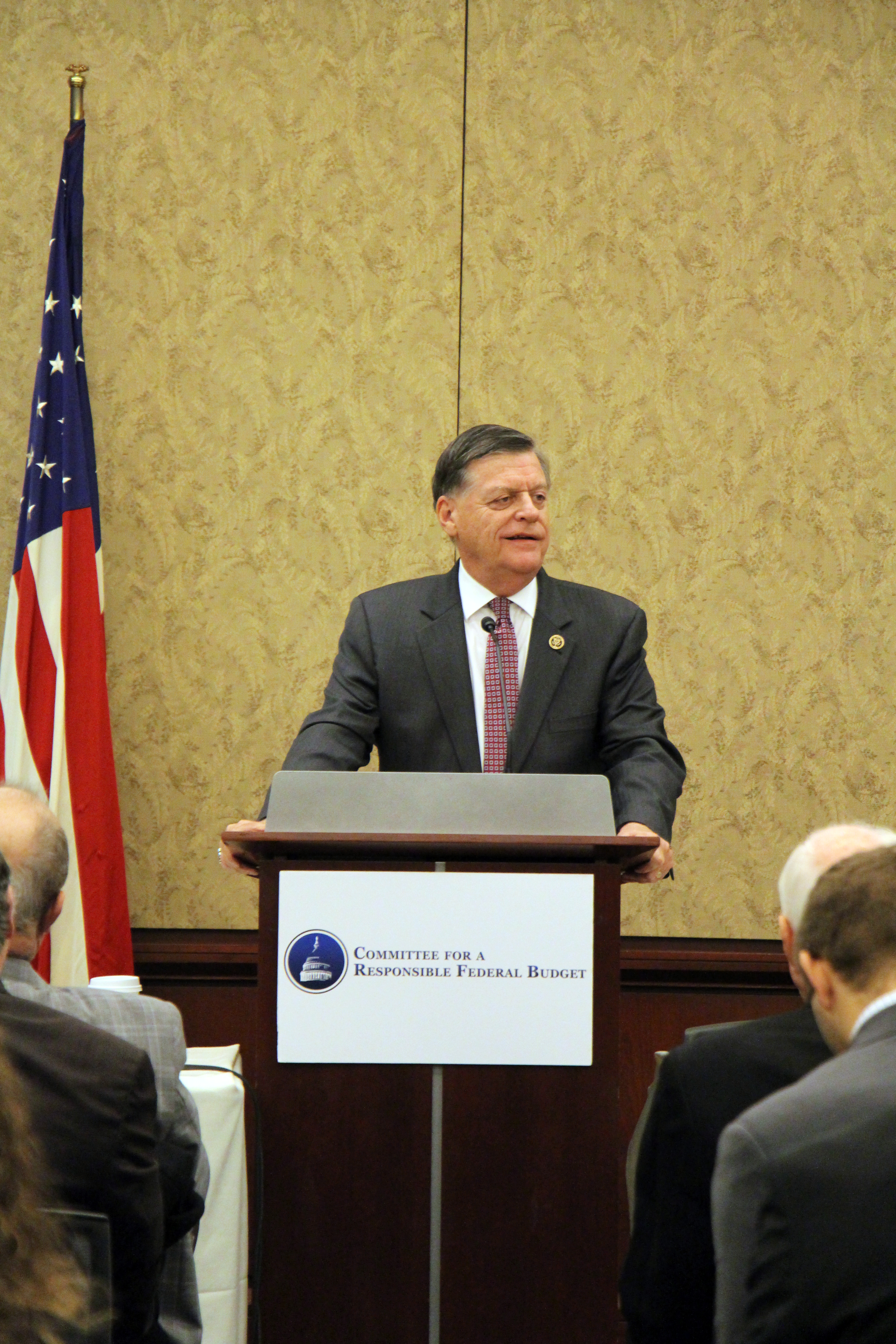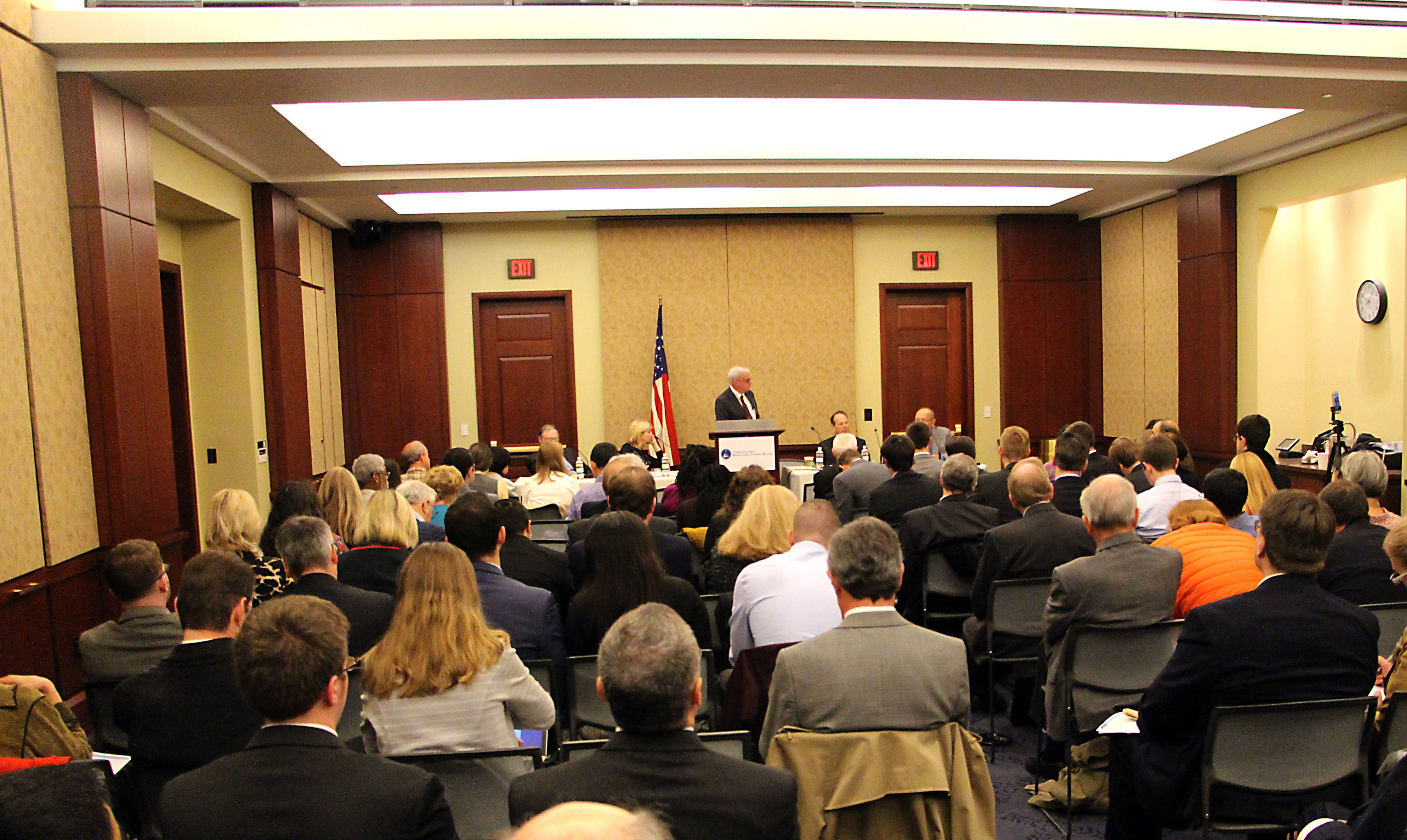The Greenspan Commission at 35: Time for Another Commission?
December 16 marks the 35th anniversary of the establishment of the National Commission on Social Security Reform – or the Greenspan Commission – which is largely credited for the 1983 Social Security reforms that extended Social Security's solvency by half a century. Last week, the Committee for a Responsible Federal Budget held an event discussing the Greenspan commission and the possible creation of a new commission to address Social Security's looming challenges. The event featured a keynote address from Representatives Tom Cole (R-OK) and John Delaney (D-MD) as well as a panel of experts.
Cole and Delaney talked about their bill, calling for a bipartisan commission to solve the funding challenges facing Social Security. Because delay would necessitate changes that are even harsher and costlier than they would be today, Cole and Delaney would have a group of 13 commissioners – appointed evenly by leadership of both parties in the House and Senate as well as the White House – work together on a compromise measure that would need to gain support from 9 members in order to get an up-or-down vote in Congress. Just like the Greenspan Commission, Cole and Delaney hope that a new Social Security commission could break through the political gridlock currently stopping necessary changes to entitlement programs. Because Social Security's funding problem is mostly a math problem, Cole and Delaney both see it as ripe for an example of how to work together on a consensus-driven solution to fiscal challenges we face in the years and decades to come.
 |
 |
Following Cole and Delaney's remarks, a panel discussion was moderated by Scott Horsley of National Public Radio featuring MacGuineas, Dr. Edward Berkowitz of The George Washington University, Jim Kessler of Third Way, and Dr. Sylvester Shieber formerly of the Social Security Advisory Board. The panel discussed the lack of serious discussion about entitlement reform on the campaign trail, all hoping that the tune would change as the president-elect switches from campaigning to governing. They also remarked on the ingredients towards having a successful commission, including giving it the strength necessary to solve the problem it needs to address, outlining a clear and discrete problem to address, and getting the buy-in necessary from policymakers to make the politically risky choices to shore up a program like Social Security. Many panelists pointed to the Bipartisan Policy Center's recent commission on retirement security as an example for how consensus can be formed, pushing for others to rally around the idea.

The panel also talked about the inability for economic growth alone to fix Social Security's funding problems, the need for tradeoffs to be evaluated in the context of entitlement programs in the federal budget, and President-elect Trump's proclivity for negotiation being encouraging for the idea of action in his term. The panelists agreed that action will need to be taken soon – and quite possibly in this president's term – to save the program and protect seniors and people with disabilities from facing harsh cuts in less than 20 years. Overall, the panel agreed that a bipartisan commission could be the solution to strengthening the program.
Read our one-pager on a Social Security commission here.
Watch the full event here or below:

